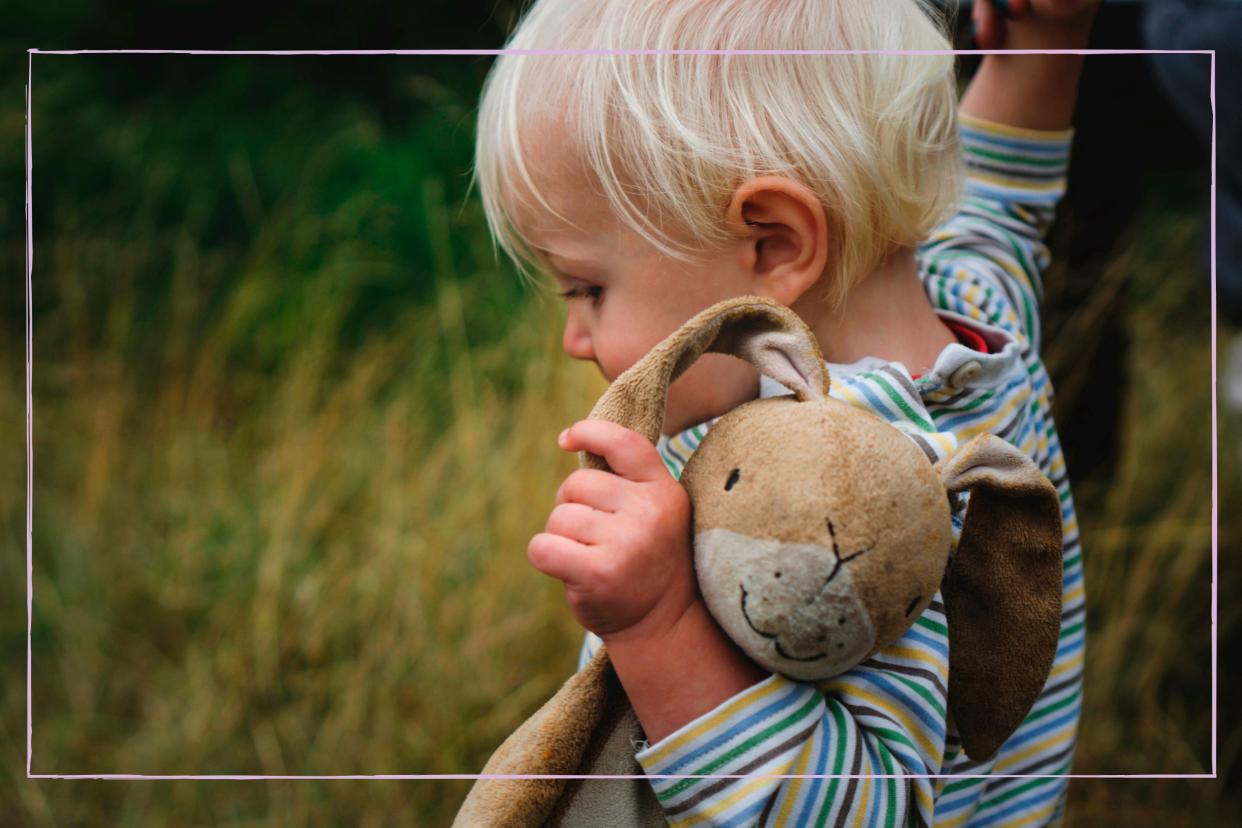Parents live in 'constant fear' of this one event, according to new research, and it's totally relatable

More than a third of parents live in 'constant fear' of their child losing their favourite toy, according to new research.
As any parent knows, many younger children have a favourite toy that they love to take everywhere with them. Quite often, these toys offer the child a sense of comfort, and might also be used as part of the bedtime routine to help children fall asleep. It might be a sensory toy that they have had since birth, or maybe they've become really attached to part of a plush stacking toy, or even have an interactive pet that they love to take along on their adventures. But parents also know that if that toy goes missing, then all hell can break loose!
According to the study, which was commissioned by Outlet Shopping at The O2, more than nine out of 10 children (93 per cent) have a special item that goes everywhere with them, and more than eight out of 10 parents (83 per cent) are worried that their child will lose their favourite toy at some point. More than a third (34 per cent) of parents would classify it as more than a worry, and say they 'live in constant fear' of their little one losing their favourite toy.
These precious toys are also some of the most stressful items to lose according to parents, who say it's as bad, if not worse than losing a mobile phone (36 per cent), house keys (33 per cent), plane or train tickets (19 per cent), while almost one in 10 say there is nothing more stressful than losing their little one's favourite toy.
"I frantically searched everywhere, alerting staff to the gravity of the SLEEPLESS NIGHT we'd have if she wasn't found. The tearful, sleepless night came when Hettie couldn't be located."
More than a fifth of parents (22 per cent) are resigned to the fact that it's just a matter of time before their little one loses their favourite toy, with half saying that the prized toy has already gone walkabout at least once. Mum of two and GoodtoKnow contributor Lucy Wigley says: "Both of my children were very attached to their favourite cuddly toys. One was named Hettie, the other, Fifi. The kids were so in love with their respective cuddlies, they had to go everywhere - to the supermarket, the beach, and to nursery. I was always on edge about them leaving the house in case they got lost, and one day Hettie disappeared at nursery. I frantically searched everywhere, alerting staff to the gravity of the SLEEPLESS NIGHT we'd have if she wasn't found. The tearful, sleepless night came when Hettie couldn't be located. Thankfully, I had a call first thing the next morning to say she'd turned up, and I sprinted to get her as fast as I could.
"We agreed the best thing would be to get a spare Hettie and Fifi - they were both Jellycat toys and still in circulation. Except, I didn't hide them very well, and Fifi's double was found. My son then insisted on having both, completely foiling our plan for emergency spares because of my poor hiding skills. Luckily, the newly named 'Fifi 1 and Fifi 2' were never lost, and still sit on his bed to this day (although are no longer needed on every single family excursion)."
"It was a gift from my sister-in-law, and she even bought him two so we'd have a back up. But we ended up buying two more back-ups..."
In order to prevent the loss, one in five parents say they are hyper-vigilant to keep an eye on the toy when out and about, while almost a quarter (24 per cent) admitted to keeping an identical back up at home should they need it. Mum-of-one Grace told us: "My little boy is four now, and he still loves this rabbit comforter he's had since birth. It was a gift from my sister-in-law, and she even bought him two so we'd have a back up. But we ended up buying two more back-ups because we knew he'd be devastated if we lost it. Having more also means that we can pop a dirty one in the wash without him getting upset."
If the worst does happen, the research shows that almost half of kids (42 per cent) and even one in ten parents will shed tears, with 21 per cent of parents resorting to calling friends and family, and 17 per cent posting on school and nursery WhatsApp groups to try and locate the missing toy. Just under a third of parents (30 per cent) head straight online to purchase an identical replacement.
If you can't find an identical replacement, then take a look at our pick of the best toys for three-year-olds, toys for £10 and under, and this year's top toys for an option that will hopefully offer a new favourite toy instead.

 Yahoo News
Yahoo News 
